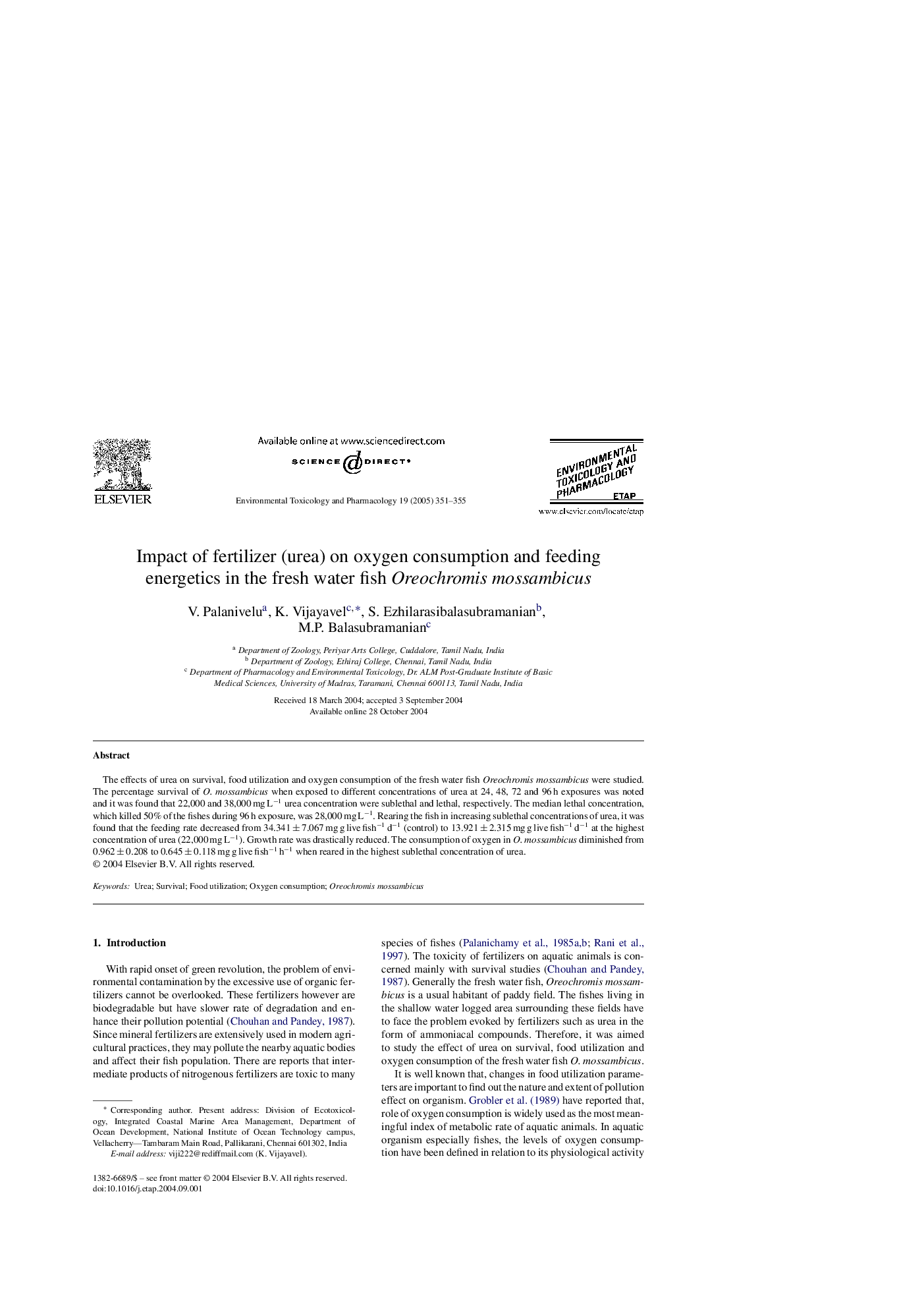| Article ID | Journal | Published Year | Pages | File Type |
|---|---|---|---|---|
| 9030180 | Environmental Toxicology and Pharmacology | 2005 | 5 Pages |
Abstract
The effects of urea on survival, food utilization and oxygen consumption of the fresh water fish Oreochromis mossambicus were studied. The percentage survival of O. mossambicus when exposed to different concentrations of urea at 24, 48, 72 and 96 h exposures was noted and it was found that 22,000 and 38,000 mg Lâ1 urea concentration were sublethal and lethal, respectively. The median lethal concentration, which killed 50% of the fishes during 96 h exposure, was 28,000 mg Lâ1. Rearing the fish in increasing sublethal concentrations of urea, it was found that the feeding rate decreased from 34.341 ± 7.067 mg g live fishâ1 dâ1 (control) to 13.921 ± 2.315 mg g live fishâ1 dâ1 at the highest concentration of urea (22,000 mg Lâ1). Growth rate was drastically reduced. The consumption of oxygen in O. mossambicus diminished from 0.962 ± 0.208 to 0.645 ± 0.118 mg g live fishâ1 hâ1 when reared in the highest sublethal concentration of urea.
Related Topics
Life Sciences
Environmental Science
Health, Toxicology and Mutagenesis
Authors
V. Palanivelu, K. Vijayavel, S. Ezhilarasibalasubramanian, M.P. Balasubramanian,
